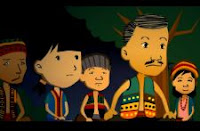Natural Justice’s Cape Town
office hosted its second monthly Skill and Information Sharing Session on 29
February 2016. We were honored with the presence of Mr. Wilberforce Laate, our Ghanaian partner from CIKOD. His
discussion focused on endogenous development and traditional leadership. It is
particularly of interest since Natural Justice is currently working with the
National Khoi & San Council to realize the formal recognition of Khoi-San peoples’ customary leadership institutions and its communities.
This approach of endogenous
development entails the idea of taking a look backward, to pick up ideas and
values that were useful from the past, in developing the future. It advocates
that all aspects of a community must be regarded in that community’s development,
those relating to the spiritual world, material world and social world.
According to this endogenous development approach, development is already
active in communities all the time. It is also a combination of both indigenous
and appropriate external knowledge and support.
Mr. Laate also shared the
traditional authority system in Ghana; how it works and what challenges they
have faced and how they have been addressing these issues since the late 1950s
when their colonial system ended.
The
Traditional and Khoi-San Leadership Bill 2015 (PDF),
the first to give recognition to Khoi-San leadership institutions, is currently
in South African parliament and open for public consultation (see Parliament
news here
and here).
Thus, at this time, Mr. Laate’s insight on endogenous development and his
example of the place of traditional authorities in Ghana serves as a shared
African experience.











.jpg)







.jpg)

